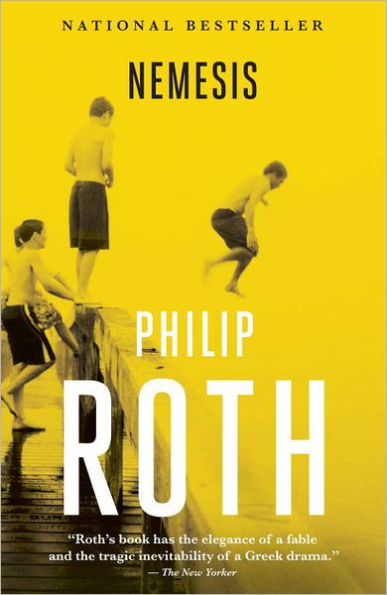
I’ve not written many reviews — or any actually — so this entertainment blog is going to be a little bit of an experiment. It will cover mostly movies, books, and maybe some television though that would most likely be Netflix or HBO as I watch almost nothing else. The Covid-19 pandemic brought to mind a book I thoroughly enjoyed and, in its later part, shocked me.
This was Philip Roth’s last novel. Fairly slender, at least it seemed so to me, it concerns the multiple dilemmas that face Bucky Cantor, a 23 year old playground director in Newark, New Jersey, in the summer of 1944 during “polio season.” It becomes clear that this particular season is much worse than usual, and Bucky, who suffers from a humiliation in that his weak eyes prevented him from serving in the war, attempts to stay courageous during this epidemic. All the while his fiancee is urging him to head to the Poconos, where he can take a job at a pristine summer camp. I think it has to be understood, when you read this, that polio came every summer — the most devastating outbreak took place, as you are informed on the first page, in 1916. In that instance, there were 27,000 cases and 6,000 deaths in the northeast. (We are already far beyond that with Covid-19.) But by 1944, a small number of cases in a town like Newark (pop. about 400,000), were expected and it wasn’t usually news worthy if there were 20 or so cases. But this year, there were an unusually large number — 40 — in the Italian section of Newark. But by July 4th, it had spread to the Jewish section where Buddy lives and works. And it’s against this backdrop that Buddy tries to “do the right thing,” a thing which is often completely uncertain. As a present day example — should you wear a mask or not? It’s clear that unless it’s a specifically designated N95 mask, it probably isn’t going to protect you from catching anything; most people wear them incorrectly; they take them off to talk. Wearing gloves doesn’t make them sterile. In fact they can be covered with germs if you wear them a lot, so touching your face with a gloved hand is virtually the same as touching it with an un-gloved hand. Yet I see people doing that all the time.
The narrator is one of the playground’s children, Arnie Mesnikoff, but it’s deliberately unclear from what present moment the story is being narrated. And when we get to that present, that is where the real strength of the novel comes in. Publisher’s Weekly gave it a pretty poor review, as you can see on the Amazon web site. But I was pretty taken with this story of a relatively unexceptional man trying to do the right thing.
